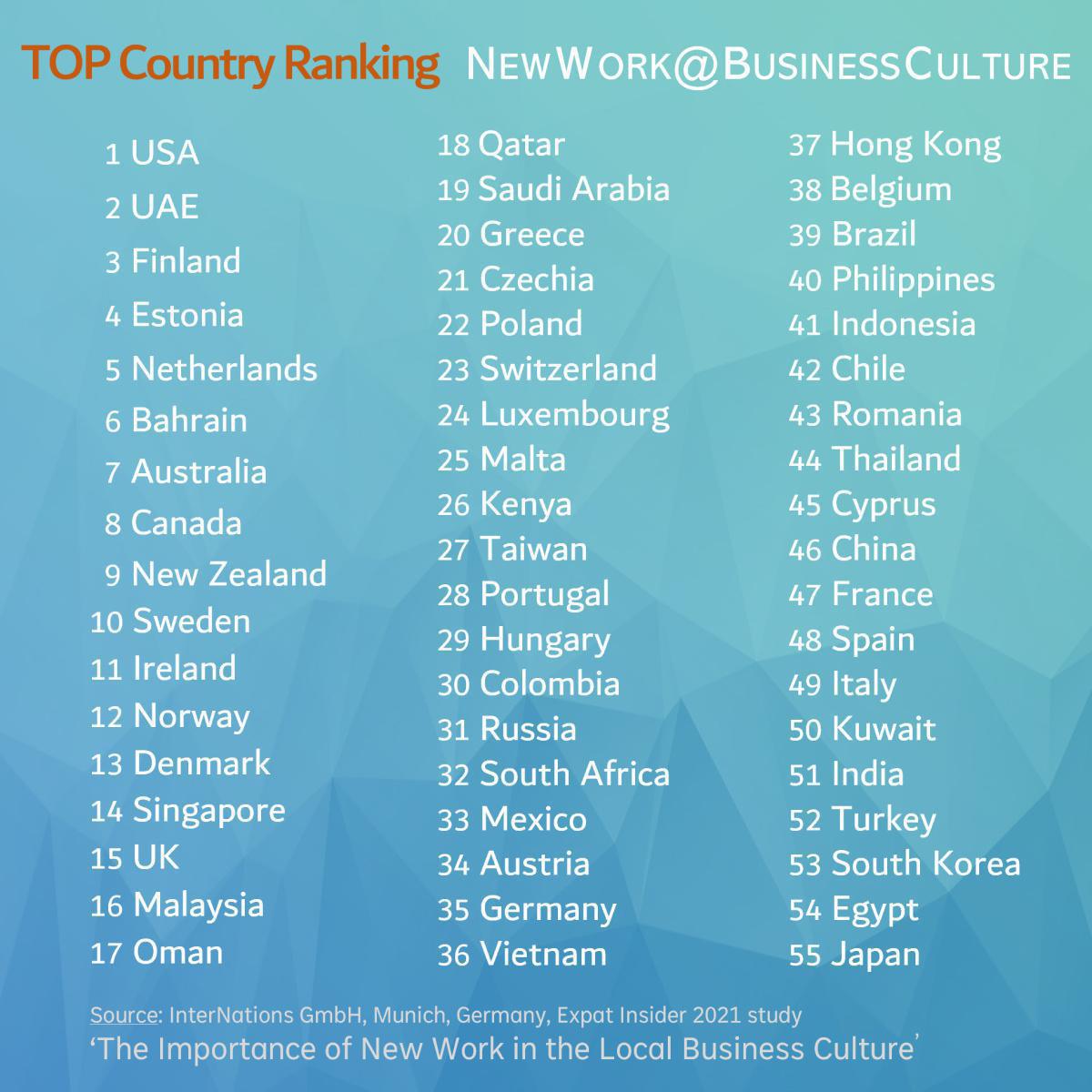The understanding of work in times of globalisation and digitalisation is closely linked to values like independence, freedom, creativity, personal development and self-organisation. Working people long for jobs that fit in well with their private lives, preferences, and free time; they expect the same flexibility from their employers in the structuring of the work environment as their companies expect from them in terms of work management.
Then, of course, the pandemic arrived, bringing about a turbo change in the working world. And then came the end of the pandemic, and somehow everything is once again different and yet not the same as before.
According to a 2021 study by internations.org, the top five countries in which the importance of New Work was rated highest by expats worldwide were the USA, the United Arab Emirates (UAE), Finland, Estonia and the Netherlands. Apart from the USA, the other four nations, the UAE, for instance, were viewed with astonishment. Nations like Germany, China, South Korea or Japan, considered leaders in other comparisons, are in the lower midfield or at the bottom of the ranking. Why is that? One relevant reason may be a lack of ability for change or the speed at which this is carried out. Another is most likely the result of corporate cultures and leadership styles that have been cultivated for decades. Entrepreneurs who are not willing or able to adapt or change their corporate culture will find it extremely difficult, if not impossible, to sustainably implement new work environments. Because one thing is certain: without a new culture, there is no “new work”!
Many years of entrepreneurial practice show that companies will only implement new work environments if they are convinced of the benefits of the change. Exceptions to this are entrepreneurs who develop corporate work environments based on their own personal motivations and value systems.
Find out whether New Work is right for your company, what you would need to do to implement it and what benefits it offers your company. In our Enterneering® blog, we explain the individual elements of corporate culture and people management and how companies can be organised in a way that is sustainable.



